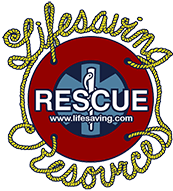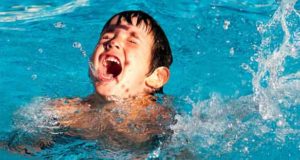New CPSC Report Finds Fatal Child Drownings Are On the Rise
June 6, 2019
The Data Identified June as the Deadliest Month for Drowning Fatalities Involving Children Younger than 15
WASHINGTON – A new report released today by the U.S. Consumer Product Safety Commission (CPSC) highlights the need for continued vigilance in combatting drowning, which continues to be a public health crisis and remains the leading cause of unintentional death among children 1–4.
There were, on average, an estimated 6,600 pool-or-spa related, hospital emergency department treated, nonfatal drowning injuries each year for 2016 through 2018, and 363 pool-or-spa related fatal child drownings reported per year for 2014 through 2016, involving children younger than 15. Fatal incident rates spiked in 2016 with 389 reported fatalities involving children younger than 15, 74 percent of which involved children younger than 5. In addition, the data also identified June as the month with the highest fatality incident rate and that residential locations made up 72 percent of reported fatal drowning incidents.
“Our data shows us who is drowning and when and where these fatal drownings are happening – children, in the summer, at residential locations,” said Acting Chairman Buerkle. “This report underscores the need for all families to stay vigilant and practice water safety anytime they are in or around the water. Before heading to a pool this season, I implore everyone to sign the Pool Safely Pledge and to take critical safety steps to ensure the joy of swimming doesn’t turn tragic. By working together, we can reduce fatalities.”
Parents and caregivers can follow Pool Safely’s simple steps to keep children safer in and around the water:
- Install a four-sided fence with a self-closing, self-latching gate around all pools and spas.
- Designate a Water Watcher to supervise children at all times around the water. This person should not be reading, texting, using a smart phone or be otherwise distracted.
- Learn how to swim and teach your child how to swim.
- Learn how to perform CPR on children and adults.
- Keep children away from pool drains, pipes and other openings to avoid entrapments.
- Ensure any pool and spa you use has drain covers that comply with federal safety standards and if you do not know, ask your pool service provider about safe drain covers.
CPSC also released an updated report on suction entrapment incidents in swimming pools, spas and whirlpool bathtubs. The key finding is that since the Virginia Graeme Baker Pool & Spa Safety Act went into effect in December 2008, there have been no reported fatalities involving a child being entrapped on a suction outlet cover in a public pool or spa.
You can read the full report on PoolSafely.gov.
Note: CPSC’s report addresses nonfatal drownings for the period 2016 through 2018 and fatal drownings for the period 2014 through 2016, reflecting a lag in the reporting of fatal drowning statistics.


